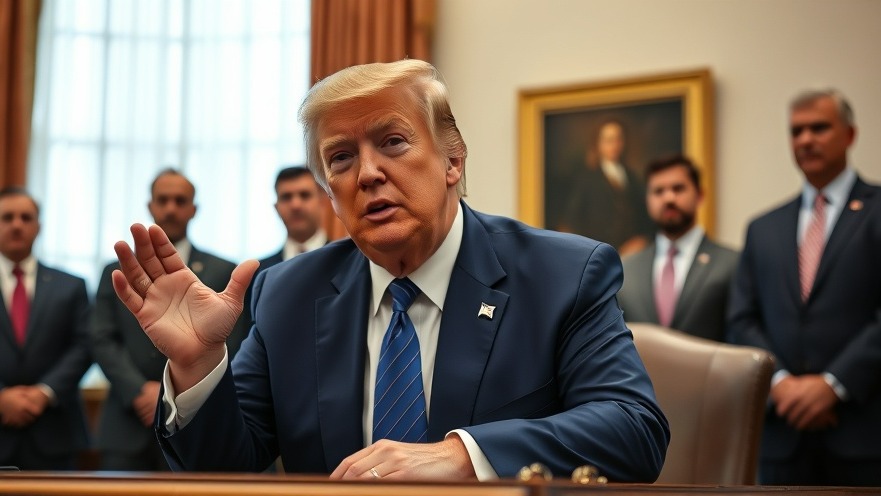
Trump's Oval Office Flub: An Alarming Recurrence
President Donald Trump's recent slip during a press conference has ignited renewed speculation about his mental state. As he attempted to leave the Oval Office without signing a crucial executive order aimed at reducing prescription drug costs, he was reminded by someone in the room to finalize the document. "I'll sign that, yeah," Trump awkwardly replied, before turning to do so. This moment, captured and spread across social media, has led many to question whether the president is fit for office.
Historical Context: A Pattern of Mishaps
Incidents like this are not new for Trump. During his first term, he faced criticism for multiple similar blunders that raised eyebrows about his mental acuity, including a significant moment where he left the room without signing an executive order. Add to that a string of other misstatements, such as confusing Harvard with Harlem and struggling to recall dates regarding sports teams visiting the White House. This pattern has fueled a narrative among many critics who worry about his capacity to lead the nation effectively.
Why This Matters: The Interplay of Leadership and Mental Health
The concerns raised about Trump's mental fitness resonate deeply within the healthcare community—particularly among those in concierge medicine. As owners of concierge medical practices strive to foster deep patient connections, a leader’s cognitive health is crucial. Patients often mirror their leaders in behaviors and attitudes; they seek confidence, clarity, and reassurance from those in power. A perceived decline in mental clarity from someone in such a critical position can influence public sentiment about health and wellness overall. A clear, sound mind is essential not just in politics, but in healthcare settings, affecting everything from patient engagement to the delivery of compassionate care.
Comparative Perspectives: Mental Fitness in Leadership
This incident has drawn parallels to critiques faced by President Joe Biden, whose own mental and physical fitness has been scrutinized by opponents. However, this comparison may obscure more important discussions about the broader impacts of mental health in leadership roles. Just as patients look to their doctors for signs of assuredness and clarity, citizens observe their leaders for these same qualities. It is essential for politicians and healthcare professionals alike to prioritize their mental well-being to ensure sound decision-making and effective leadership.
The Community Reaction: Social Media's Role
Social media has magnified these moments of concern, framing public discourse around mental health in political contexts. As users shared their worries regarding Trump with comments like, "Is he OK?" and "His brain is broken," it illustrates the societal expectation that leaders should exhibit optimal mental clarity. This reflects a larger conversation about how mental health is stigmatized and discussed in public forums. For concierge medical practices, understanding these dynamics can be integral to forming connections with patients from various backgrounds, enabling more empathetic healthcare delivery.
What Can We Learn: Implications for Healthcare Leaders
The intersection of politics and healthcare underscores the importance of mental health advocacy. As professionals in patient-centered practices, the focus should expand to encompass not only our patients but also our leaders. Engaging in dialogue about mental wellness can further destigmatize the topic and promote healthier behaviors among both politicians and healthcare providers.
In conclusion, the recent events surrounding President Trump and the conversations they ignite should motivate medical professionals to advocate for mental well-being actively. By fostering open discussions and enhancing understanding of mental fitness, providers can help their patients—and leaders—navigate the complexities of health in a multifaceted world.
 Add Row
Add Row  Add
Add 






Write A Comment